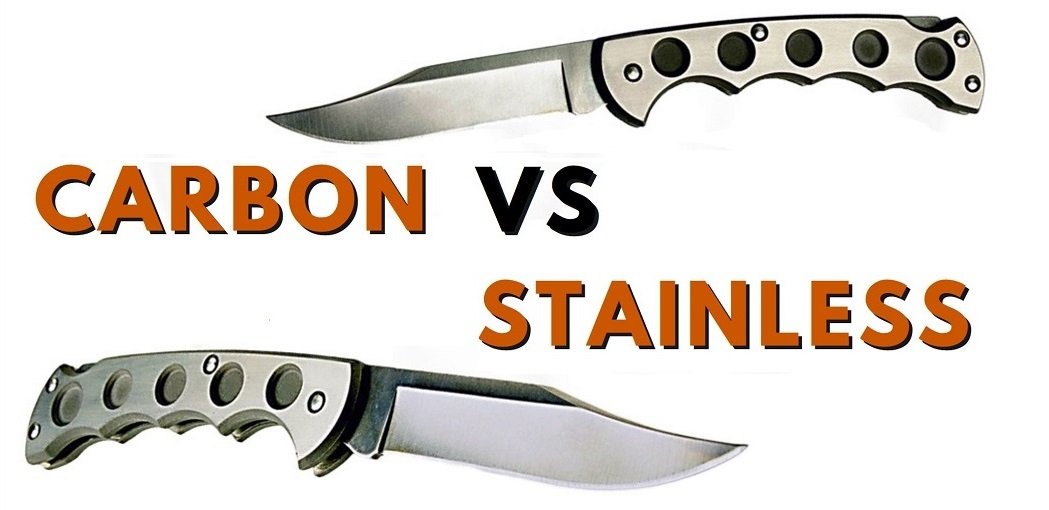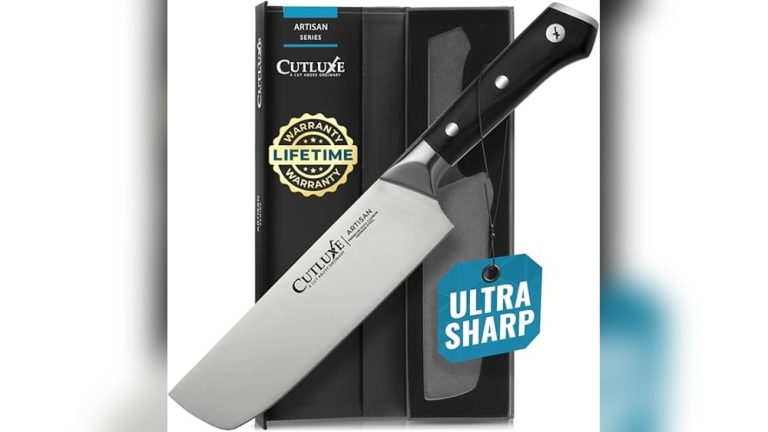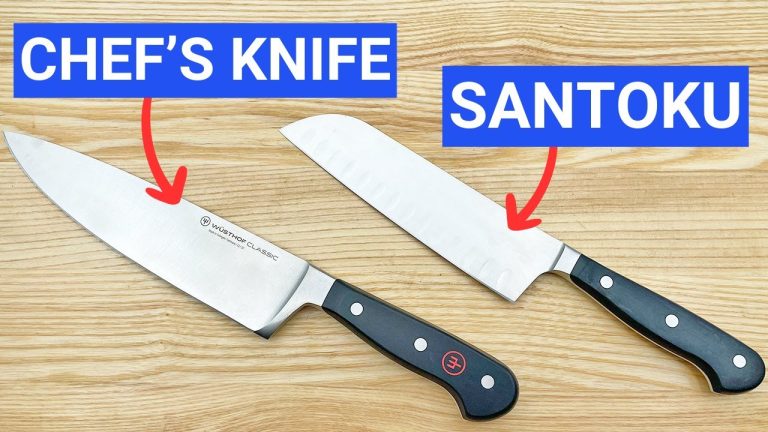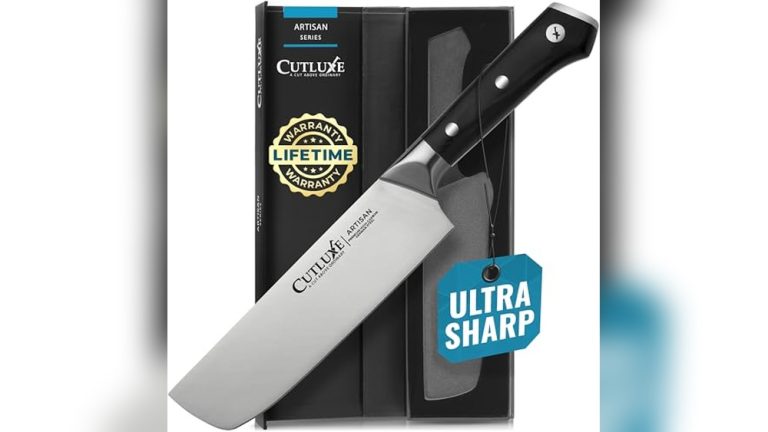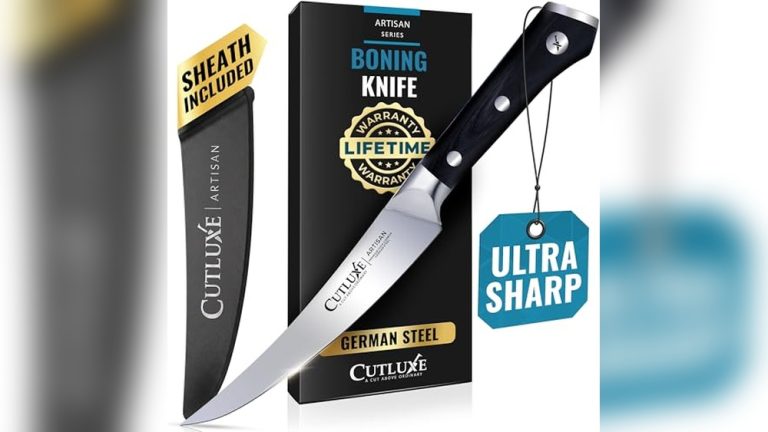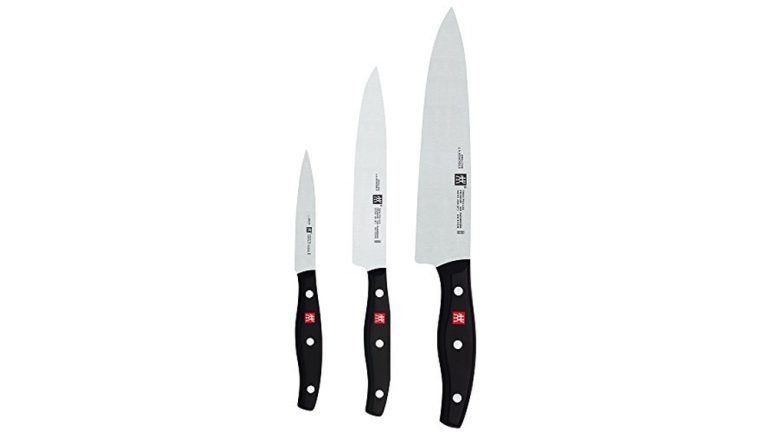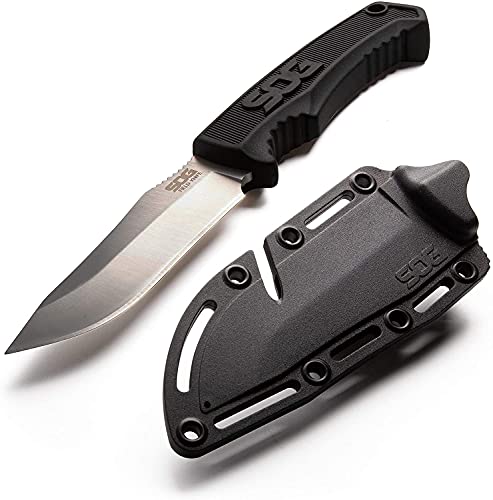Alloy Steel Vs Stainless Steel Knife: Ultimate Comparison Guide
Choosing between an alloy steel knife and a stainless steel knife can be challenging. Both materials have unique benefits and potential drawbacks.
Comparing alloy steel and stainless steel knives helps you make an informed decision. Alloy steel knives are known for their hardness and durability, making them a popular choice among professional chefs. On the other hand, stainless steel knives resist corrosion and are easier to maintain, appealing to home cooks.
Understanding the differences between these two materials is crucial. It ensures you select the best tool for your needs. In this blog post, we’ll explore the characteristics of each type. This will help you decide which knife suits your kitchen best. Stay tuned as we dive into the specifics.
Credit: www.meadmetals.com
Alloy Steel Knives
Alloy steel knives are popular for their durability and strength. These knives are crafted from steel mixed with various elements. This blend improves their overall performance. They are a favorite among chefs and outdoor enthusiasts.
Definition And Composition
Alloy steel knives are made from steel mixed with other elements. Common elements include chromium, vanadium, and nickel. These elements enhance the knife’s properties. The exact composition varies by manufacturer.
Advantages
- Durability: Alloy steel knives are highly durable. They withstand wear and tear better than most knives.
- Strength: These knives are incredibly strong. They can handle tough cutting tasks with ease.
- Sharpness: Alloy steel knives maintain their sharp edge for longer. This means fewer sharpenings are needed.
- Corrosion Resistance: Some alloy steels resist rust better than plain carbon steel.
Disadvantages
- Maintenance: Alloy steel knives can require more maintenance. Regular cleaning and drying are necessary to prevent rust.
- Weight: These knives can be heavier. This might be tiring for extended use.
- Cost: High-quality alloy steel knives can be expensive. They are often pricier than stainless steel knives.
Stainless Steel Knives
Stainless steel knives are popular in kitchens around the world. They are known for their durability and resistance to rust. These knives are a staple for many chefs and home cooks. But what makes stainless steel knives so special?
Definition And Composition
Stainless steel knives are made from a blend of iron, carbon, and chromium. The chromium gives the knife its rust-resistant properties. Most stainless steel knives contain at least 10.5% chromium. This helps the knife resist stains and corrosion. Some knives also include other metals like nickel and molybdenum. These additions enhance the knife’s strength and durability.
Advantages
Stainless steel knives are highly durable. They can withstand heavy use without showing much wear. Their rust resistance makes them easy to maintain. Cleaning them is a breeze, often needing just a quick wash and dry. These knives also have a long lifespan. They can last many years with proper care. Stainless steel knives are versatile. They are suitable for various cooking tasks, from chopping vegetables to slicing meat.
Disadvantages
Stainless steel knives can be harder to sharpen. Their durable nature makes them more resistant to honing. This means you might need special tools or professional sharpening. They can also be more expensive. The added chromium and other metals increase the production cost. Some stainless steel knives might feel heavier. This can be a disadvantage for those who prefer lighter tools.
Performance Comparison
Choosing between an alloy steel knife and a stainless steel knife can be challenging. Both have unique advantages and drawbacks. This section will compare their performance based on key factors such as sharpness, edge retention, and corrosion resistance.
Sharpness And Edge Retention
Alloy steel knives are known for their outstanding sharpness. The composition of alloy steel allows for a very fine edge. This means the knife can slice through materials with ease. These knives also maintain their sharpness for a longer time.
On the other hand, stainless steel knives are less likely to maintain a razor-sharp edge. They require more frequent sharpening. This is because stainless steel is softer compared to alloy steel. Therefore, it dulls quicker. Yet, stainless steel is still a popular choice due to its other benefits.
Corrosion Resistance
When it comes to corrosion resistance, stainless steel knives are superior. The presence of chromium in stainless steel makes it resistant to rust and stains. This is ideal for kitchen environments where moisture is prevalent.
In contrast, alloy steel knives are more prone to rust. They require more maintenance to prevent corrosion. Regular oiling and drying are necessary to keep these knives in good condition. This can be a drawback for users seeking low-maintenance options.

Credit: wildiowaoutfitters.com
Durability And Maintenance
Choosing the right knife involves considering durability and maintenance. Alloy steel and stainless steel knives both have unique qualities. Understanding these can help you make an informed choice.
Ease Of Sharpening
Alloy steel knives are easier to sharpen. Their softer material allows for quick touch-ups. You can use a simple whetstone or honing rod.
Stainless steel knives are harder. Sharpening them requires more effort. You might need professional tools or services. This can be a drawback for some users.
Cleaning And Care
Alloy steel knives need more care. They can rust if not dried well. Always dry them after washing to prevent rust.
Stainless steel knives resist rust. They are easier to clean and maintain. A simple wash and dry routine works well.
Both knife types need regular care. Proper maintenance ensures long-lasting performance. Choose based on your ability to maintain them.
Cost And Value
When choosing between alloy steel and stainless steel knives, understanding the cost and value is essential. Each type of steel offers distinct advantages, but their price and long-term benefits can greatly influence your decision. Let’s dive into the cost and value aspects of these two materials.
Price Range
Alloy steel knives generally have a lower upfront cost compared to stainless steel knives. This makes them more accessible for budget-conscious buyers. The price of alloy steel knives can vary based on the specific alloy used, but they are typically more affordable.
On the other hand, stainless steel knives are often more expensive. This is due to the added chromium content, which enhances corrosion resistance. The higher price reflects the quality and durability that stainless steel offers.
| Type of Knife | Average Price Range |
|---|---|
| Alloy Steel Knife | $20 – $100 |
| Stainless Steel Knife | $50 – $200 |
Long-term Investment
Alloy steel knives may require more maintenance over time. They are more prone to rust and corrosion. Regular oiling and proper storage can extend their lifespan. The initial savings might be offset by the cost of upkeep.
Stainless steel knives tend to be a better long-term investment. Their resistance to rust and corrosion reduces maintenance costs. They retain their sharpness longer, meaning less frequent sharpening. This durability can save money over time.
When considering long-term value, stainless steel knives offer greater peace of mind. They are an investment in quality and longevity. Choosing stainless steel can be more economical in the long run.
- Alloy steel knives: Lower initial cost, higher maintenance.
- Stainless steel knives: Higher initial cost, lower maintenance.
Understanding the cost and value of alloy steel vs stainless steel knives helps in making an informed decision. Consider both the price range and long-term investment to find the best option for your needs.

Credit: knifesteelnerds.com
Best Uses
Choosing the right knife for your kitchen can be confusing. Alloy steel and stainless steel knives have their own strengths. Each type of knife excels in different situations. Let’s explore their best uses.
Alloy Steel Knife Applications
Alloy steel knives are known for their hardness and sharpness. This makes them ideal for tasks that require precision. Here are some common uses:
- Cutting meat: These knives can handle tough meats with ease. Their sharp edge ensures clean cuts.
- Slicing vegetables: For thin, even slices, alloy steel knives are perfect. They maintain their sharp edge longer.
- Precision tasks: Tasks like deboning and filleting are easier with alloy steel knives. Their hardness allows for fine, delicate work.
Stainless Steel Knife Applications
Stainless steel knives are known for their resistance to rust and stains. This makes them versatile and low-maintenance. Here are some best uses:
- Everyday cooking: Stainless steel knives are great for general kitchen tasks. They are durable and easy to clean.
- Outdoor use: These knives are perfect for camping and picnics. Their resistance to rust makes them ideal for outdoor conditions.
- Dishwasher-friendly: Stainless steel knives can often be cleaned in the dishwasher. This makes them convenient for busy kitchens.
Both alloy steel and stainless steel knives have unique benefits. Choosing the right knife depends on your specific needs and preferences.
Frequently Asked Questions
What Is The Main Difference Between Alloy Steel And Stainless Steel Knives?
Alloy steel knives are known for their hardness and durability. Stainless steel knives resist rust and corrosion better, making them ideal for wet conditions.
Which Knife Holds An Edge Better, Alloy Or Stainless?
Alloy steel knives generally hold an edge longer due to their hardness. However, stainless steel knives require less maintenance and resist rust.
Are Alloy Steel Knives More Expensive Than Stainless Steel?
Alloy steel knives are often more expensive due to their durability and edge retention. Stainless steel knives are more affordable and require less maintenance.
Can Stainless Steel Knives Rust?
Stainless steel knives resist rust better than alloy steel. However, they can still rust if not properly cared for.
Conclusion
Choosing between alloy steel and stainless steel knives depends on your needs. Alloy steel knives offer sharpness and durability. Stainless steel knives resist rust and are low-maintenance. Think about your kitchen habits and preferences. Do you need a knife that stays sharp longer?
Or one that’s easy to care for? Both types have their benefits. Consider your priorities and cooking style. This way, you can pick the best knife for your kitchen. Happy cooking!

